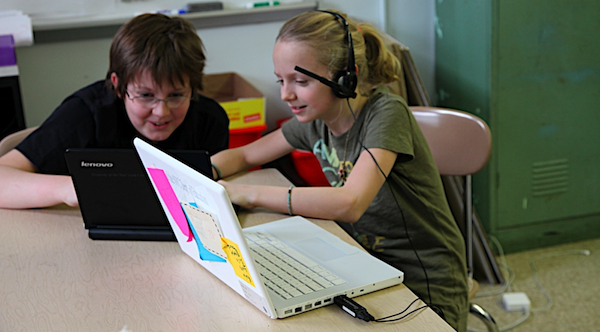dmlcentral.net
Teens, Social Media, and Celebrity: Anatomy of an Incident
Recently, two Brazilian teenagers practicing sexting on Twitcam, became international news. More than 25,000 Twitter users watched the live transmission of the couple’s intimate moments. Copies of the video and screen shots quickly flooded other social networking sites. Several Twitter users who saw the images denounced the incident and it was reported to a local police chief. The police chief launched an investigation (all links in Portuguese) and contacted the boy, the girl, and their parents. The two teenagers (a 16-year-old boy and a 14-year-old girl) said the broadcast was the result of a wager. The boy subsequently posted a video on YouTube explaining that the act was consensual: “We exposed ourselves this way because we made a bet and she lost it.” The live broadcast has dramatically raised the profile of the issues of privacy, teens, and Internet culture in the national conversation in Brazil. The case has prompted considerable debate among youth development specialists, parents, and authorities, who increasingly find themselves looking for more effective ways to educate teens about online privacy issues.… more
Social Steganography: Learning to Hide in Plain Sight
Carmen and her mother are close. As far as Carmen's concerned, she has nothing to hide from her mother so she's happy to have her mom as her 'friend' on Facebook. Of course, Carmen's mom doesn't always understand the social protocols on Facebook and Carmen sometimes gets frustrated. She hates that her mom comments on nearly every post, because it "scares everyone away...Everyone kind of disappears after the mom post...It's just uncool having your mom all over your wall. That's just lame." Still, she knows that her mom means well and she sometimes uses this pattern to her advantage. While Carmen welcomes her mother's presence, she also knows her mother overreacts. In order to avoid a freak out, Carmen will avoid posting things that have a high likelihood of mother misinterpretation. This can make communication tricky at times and Carmen must work to write in ways that are interpreted differently by different people.… more
If technology is making us stupid, it's not technology’s fault
There has been growing concern that computers have failed to live up to the promise of improving learning for school kids. The New York Times, The Washington Post, and PBS have all done stories recently calling into question the benefits of computers in schools. When computers fail kids, it’s too easy to blame the technology. And it’s disingenuous simply to cast aspersions on the kids. Those are responses that do little if anything to account for what is a much more layered set of conditions. Computers don’t define how they are taken up socially, people do. Guardians, or extended families more largely, are a key constituent in the conditions for productive, participatory learning engagements with technology. But they are not the only players, by far. Teachers, policymakers, even gaming corporations share responsibility to fashion the sort of robust, attractive learning ecologies, instruments, and products to maximize the vast potential computing technologies and the Internet hold for engaged and indeed lifelong learning experiences.… more


